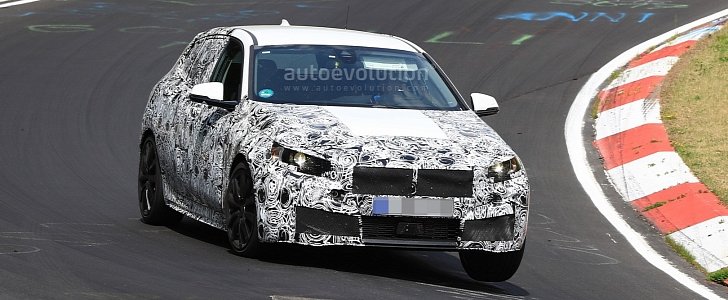The A45 isn't quite the headline-grabber it used to be, but it's still a success story for Mercedes-AMG. However, BMW is not going to chase it with a four-cylinder hot hatch of its own.
According to a report from CarAdvice, BMW M boss Frank van Meel said the brand wouldn't offer a four-cylinder turbocharged engine. This would not offer the kind of grunt its customers expect. He also added that the inline-6 would remain the core for the foreseeable future.
“We are really happy with our six-cylinder [engines] because for BMW and BMW M that is our heritage engine. We started with six-cylinder in the M1, so it has a long history. BMW is a six-cylinder inline company and, for us, it’s an iconic engine,” he said.
Of course, the iconic M cars weren't born with six cylinders. The E30 M3, arguably one of the most important cars in BMW history, was powered by a high-revving S14 four-cylinder engine producing just 235 horsepower in its final Euro-spec version. The i8 gets about as much from a 1.5-liter 3-cylinder.
He also argued that four-cylinder engines sacrifice their low-end delivery to gain headline-grabbing power figures. That doesn't work for the sort of everyday experience M cars are supposed to offer. However, van Meel did say that electric motors could be used to fill that bottom-end gap. But the technology brings with it some drawbacks, the biggest of which is the weight of the battery packs.
“So, at the time being, it’s a dilemma – but we are working on that with our [BMW i] colleagues to have a look at the next generation of battery cells, regarding weight, power, density, and range to find the right tipping point to say, ‘now it makes sense to go in that right direction.’ But today is not the right time,” the official concluded.
So while there will eventually be a hybrid M car, as the rumors suggested, it's not even close to ready. However, as our spyshots already hint, that an M Performance version of the next BMW 1 Series will indeed offer a 2.0-liter turbo engine. Our info suggests it will produce 300 horsepower and around 350 Nm of torque. But the brand won't go the extra mile to challenge the A45's expected 400 HP.
“We are really happy with our six-cylinder [engines] because for BMW and BMW M that is our heritage engine. We started with six-cylinder in the M1, so it has a long history. BMW is a six-cylinder inline company and, for us, it’s an iconic engine,” he said.
Of course, the iconic M cars weren't born with six cylinders. The E30 M3, arguably one of the most important cars in BMW history, was powered by a high-revving S14 four-cylinder engine producing just 235 horsepower in its final Euro-spec version. The i8 gets about as much from a 1.5-liter 3-cylinder.
He also argued that four-cylinder engines sacrifice their low-end delivery to gain headline-grabbing power figures. That doesn't work for the sort of everyday experience M cars are supposed to offer. However, van Meel did say that electric motors could be used to fill that bottom-end gap. But the technology brings with it some drawbacks, the biggest of which is the weight of the battery packs.
“So, at the time being, it’s a dilemma – but we are working on that with our [BMW i] colleagues to have a look at the next generation of battery cells, regarding weight, power, density, and range to find the right tipping point to say, ‘now it makes sense to go in that right direction.’ But today is not the right time,” the official concluded.
So while there will eventually be a hybrid M car, as the rumors suggested, it's not even close to ready. However, as our spyshots already hint, that an M Performance version of the next BMW 1 Series will indeed offer a 2.0-liter turbo engine. Our info suggests it will produce 300 horsepower and around 350 Nm of torque. But the brand won't go the extra mile to challenge the A45's expected 400 HP.









